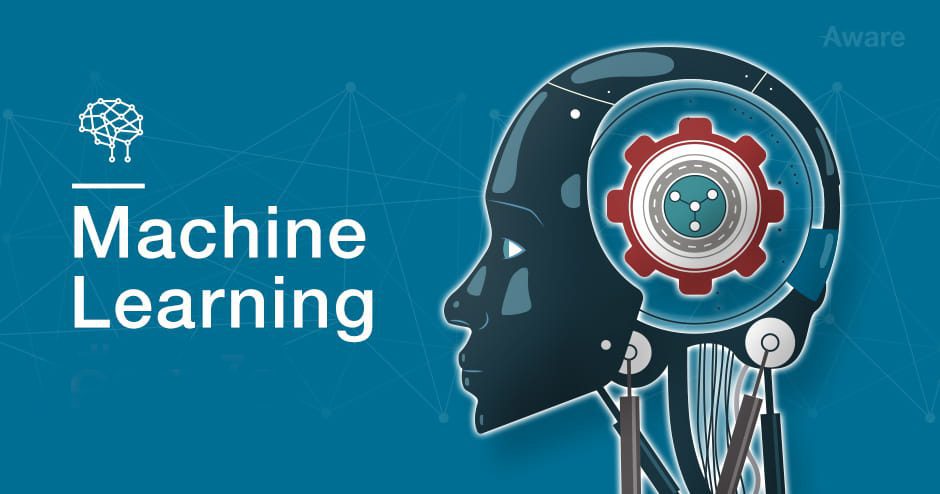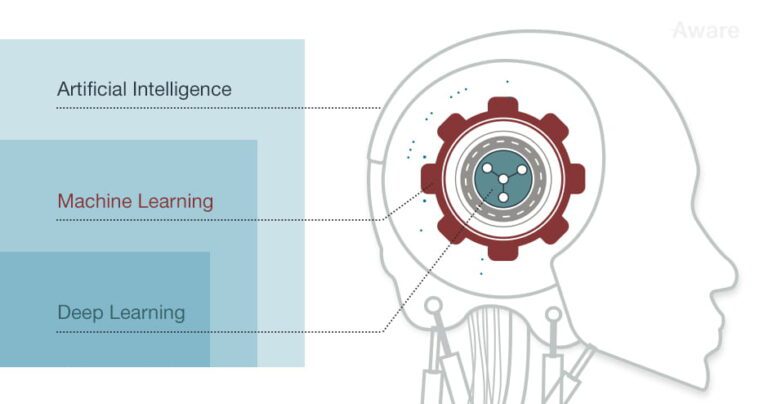

If AI is artificial intelligence, then what is Machine Learning?
Machine Learning (ML) is the learning component of machines, often considered the “brain” of AI (Artificial Intelligence). In essence, AI uses Machine Learning to develop intelligence. ML typically refers to models created through machine learning processes, rather than being directly programmed by humans. Humans design programs that enable AI (the machine) to learn from data, but the machine handles the rest independently.
Machine Learning learns from stimuli provided to it, remembers this information as its “brain,” and outputs results in the form of numbers or codes. These outputs are either displayed or used by AI to perform actions. ML can be applied in various ways, relying on mechanisms called algorithms, which come in many forms and are designed by data scientists. One popular algorithm is Deep Learning, known for its versatility and ease of application. However, in real-world applications, data scientists often need to design variables within Deep Learning and compare it with other algorithms to find the most suitable one for specific tasks.
In summary, AI relies on Machine Learning as its brain, learning from inputs and producing outputs as data sets, processed using algorithms.


สรุปว่า AI จะกระทำอะไรต่อมิอะไรได้ต้องอาศัยส่วนสมองอย่าง Machine Learning ที่เรียนรู้จากสิ่งที่เราส่งไปและส่งผลออกมาเป็นชุดข้อมูล โดยอาศัยโปรแกรม Algorithm ในการประมวล
Machine Learning in Everyday Life
Machine Learning has seamlessly integrated into our daily lives. Here are some examples that you might recognize:
Apple Siri and Speech Recognition
Machine Learning enables Natural Language Processing (NLP), allowing Siri to understand and process human speech. Unlike computers, which use structured language, humans often use ambiguous expressions. NLP leverages Machine Learning to improve accuracy and adapt to the evolving nature of language, making Siri smarter and faster at understanding us.Apple Face ID
Face ID utilizes ML to recognize facial features, even with changes like makeup or hairstyles. Infrared dots are projected to scan the face, and ML models trained on diverse facial patterns ensure reliable recognition—even with masks, Face ID remains effective.Google Assistant and Voice Commands
ML enhances Google Assistant’s ability to process voice commands accurately, supporting various accents and languages.YouTube Recommendations
Google uses ML to analyze user behavior and recommend videos based on viewing history, enhancing user engagement.Netflix Content Suggestions
Netflix applies ML to recommend movies and shows based on individual preferences. It customizes visuals, such as displaying actors or scenes most likely to resonate with the user, to encourage viewing.Baidu and AI Advancements
Baidu, a leading Chinese tech giant, integrates AI and ML across various domains:- Search Engine: Improves results with facial and voice recognition, and natural language processing.
- Open Source: Shares ML research and projects to the public.
- Augmented Reality (AR): Combines ML with AR for historical site restoration.
- Healthcare: Baidu Doctor uses Deep Learning for diagnosis and consultation.
- Smart Home: Xiaoyu Zaika, a competitor to Amazon Alexa, processes voice commands and integrates online shopping.
- Self-Driving Cars: Baidu is developing autonomous vehicles, with large-scale production anticipated.
The Growing Impact of AI and Machine Learning
AI and ML are increasingly prominent across industries, meeting the needs of businesses and consumers alike. As these technologies become more accessible, professionals can leverage them to enhance efficiency and productivity. Early adopters who understand and utilize these tools will gain a competitive edge.
Looking ahead, greater connectivity, such as with 5G, will further accelerate innovation. IoT-driven data will empower businesses to market products more effectively, shaping global commerce and daily life. As a result, AI and ML will continue to drive technological and economic advancements well into the future.
Digital Marketing Manager at Aware Group: Working his way through the world of technology and Thailand as best as he can. Happy to contribute to other tech publications.